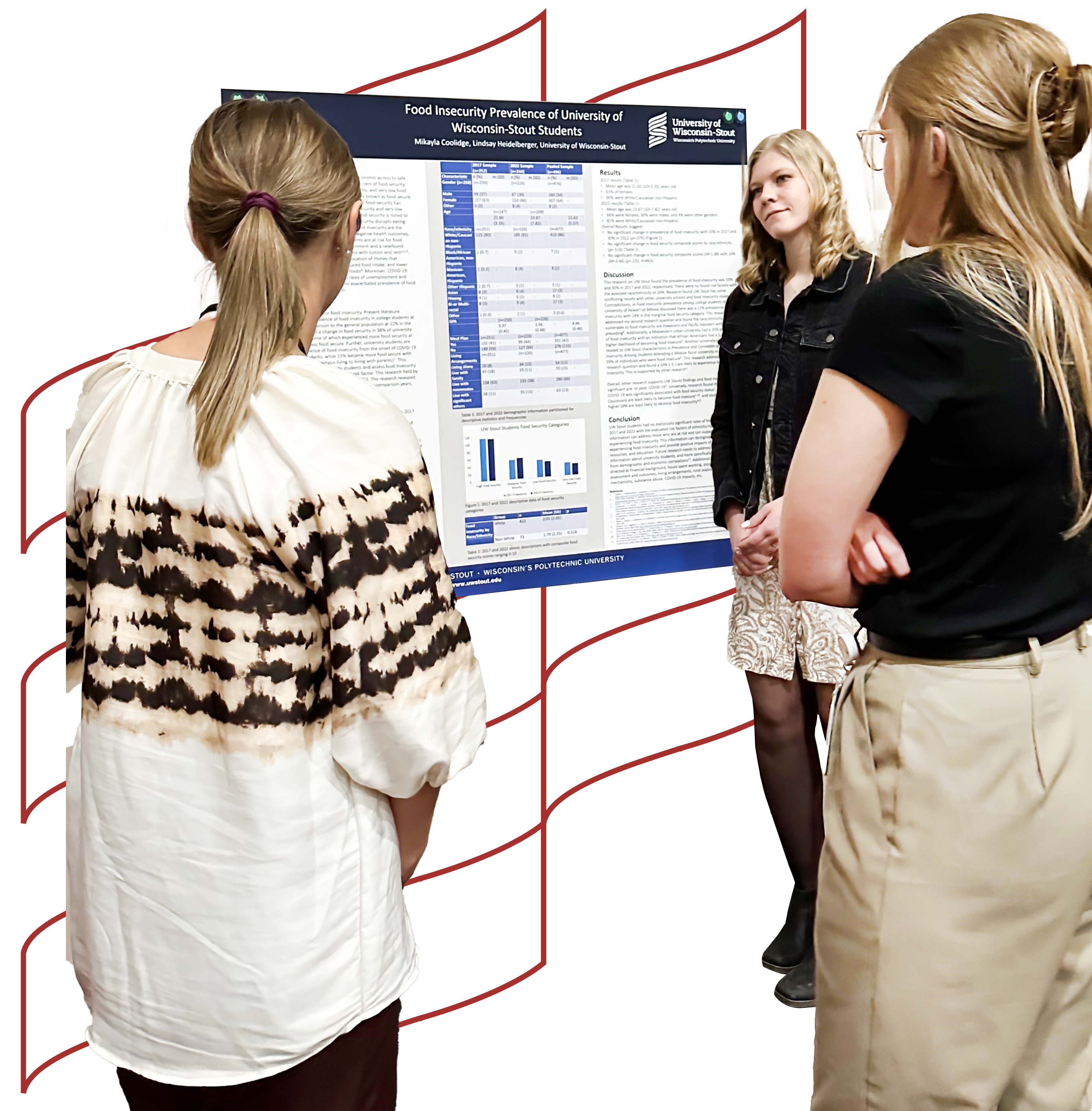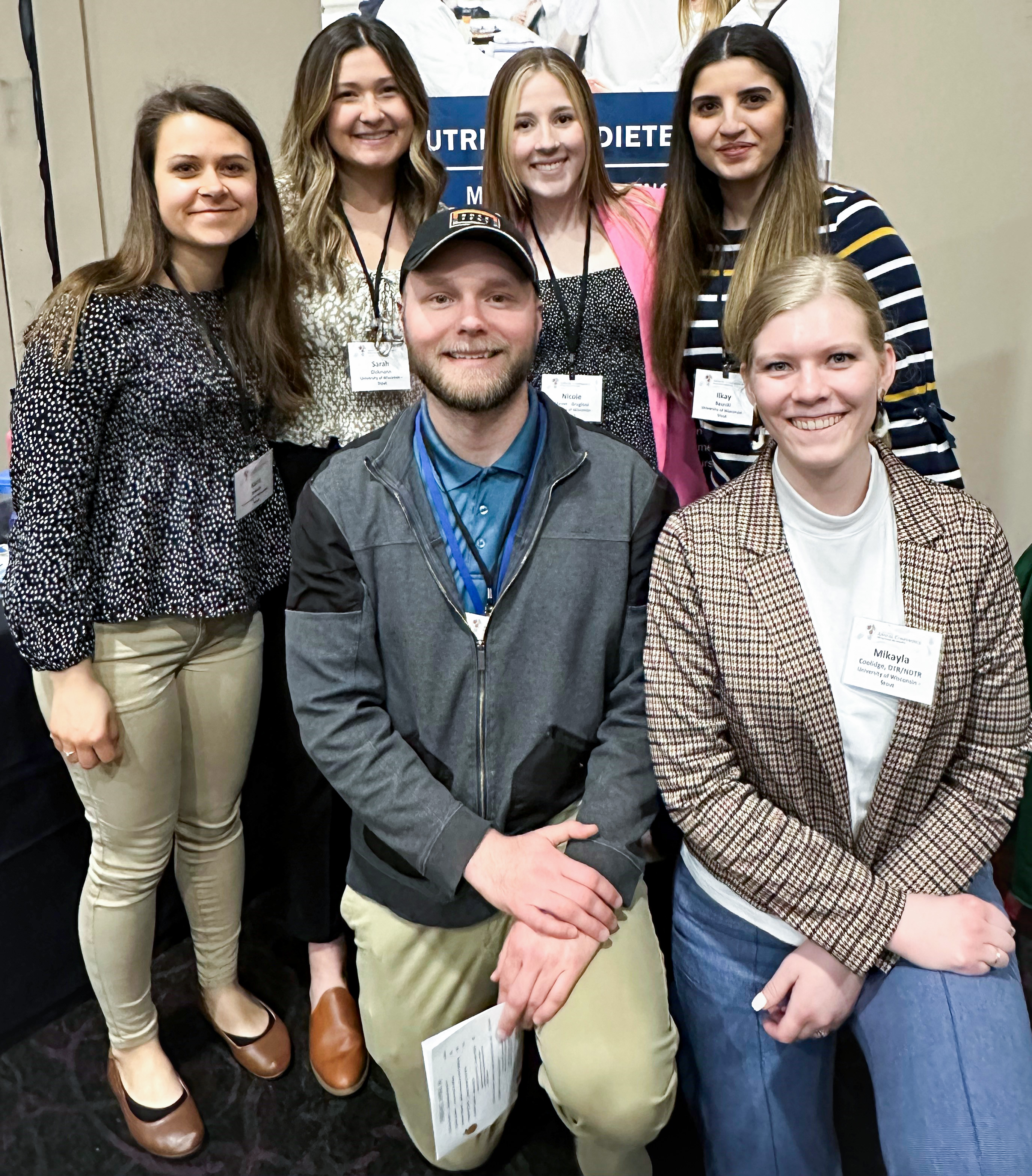Cost of Graduate Credits
Interns enroll as non-degree seeking students and therefore are not eligible to receive financial aid through UW-Stout. Interns are allowed to seek personal loans to pay for tuition costs of the internship. Interns are eligible for loan deferments during the internship program. All tuition and fees noted below are subject to change without notice. Interns will be required to register for 15 credits: 6 in Fall, 6 in Spring, and 3 in Summer. You may choose to pay the entire fee for credits at the time of registration or can choose to follow the payment plan set by UW-Stout. For more information go to the Student Business Services website. UW-Stout graduate students who plan on completing our internship program are eligible to apply for up to $4000 in scholarships to help cover internship expenses. See the Foundation Scholarships website and search using "Dietetics" for more details.
Transportation Costs
Interns are responsible for their own reliable transportation. Costs of maintaining a vehicle and expenses from driving to sites are also the responsibility of the intern. Costs will vary depending on the distance to each site and could be substantial depending on the different rotation sites for each intern. All interns are expected to arrive in a timely manner for all activities associated with the rotations and the internship in general. This includes attendance to professional meetings and required workshops and conferences. Therefore, the cost of transportation should be factored into the total cost of the program.
Housing Costs
Interns are responsible for arranging and paying for their own housing costs. Interns may choose to live where they desire. See the University Housing website for information on current university housing if living in the Menomonie area.
Health Insurance
All interns will need to show proof of health insurance prior to starting the internship. The health insurance must be for the entire internship year (August – May). Cost of health insurance is the intern’s responsibility. As a graduate student at UW-Stout, you would be able to buy health insurance through the university if you are not covered by your parents or spouse.
Professional Liability Insurance
Interns are required to have proof of professional liability insurance prior to starting rotations. Interns are responsible for buying the liability insurance. The insurance needs to cover the entire internship year (August – May). As a member of AND, this insurance is available through Proliability at www.proliability.com, and is endorsed by the Academy of Nutrition and Dietetics.
State AND Conference
Interns will attend their state’s Academy of Nutrition and Dietetics annual conference. The conference is typically held in April and is two days long. The cost of registration for the conference will vary. Interns are also responsible for hotel and transportation costs to attend the conference. Interns will register for the conference on their own when registration becomes available.
Background Check
All interns will need to have a background check completed prior to starting the internship. All rotation sites require this to work in their facility. If your preceptor requires a copy of your background check, the DI program will provide it to the preceptor. If the facility requires a drug screening prior to beginning rotation, the intern must comply. If the facility requires fingerprinting prior to beginning rotation, the intern must comply. To complete the background check go to www.castlebranch.com. The cost is ~$33.
Medical Exams, Tests & Immunizations
All interns must have a physical exam conducted within nine months prior to the start of the internship and provide a written statement from the licensed health care professional attesting to the condition of the intern’s health. Interns must also provide proof of the immunizations and tests that fulfill the requirements of the Joint Commission on Accreditation of Health Care Organizations, the CDC guidelines, and the affiliation agreements between the University of Wisconsin-Stout and the supervised practice sites. Required immunizations and tests include these and may also include others:
- A physician signed health/physical examination within 6 months prior to start of internship with official records and dates of all vaccinations and immunizations, including:
- 2 doses of the MMR vaccine to prove immunity to measles, mumps and rubella
- Proof of immunity to chicken pox (a titer is required if you have had chicken pox) or 2 vaccinations
- 2 Step TB Test which will be valid through the completion of the program (some rotations require additional)
- Tetanus immunization within the past 10 years.
- Flu shot for current season
- Drug Test - 10 panel
- Hepatitis B - 3 shot series. A titer is recommended to show immunity.
- COVID-19 vaccine is highly recommended but not mandatory.
Distance Education Components & Technology Requirements
- Virtual Supervised Practice: Interns will participate in supervised practice experiences through virtual platforms, allowing for real-time interaction and feedback from preceptors.
- Online Coursework: Certain didactic components of the program will be delivered through an online learning management system, providing flexibility and accessibility.
- Reliable Internet Connection: A stable and high-speed internet connection is essential for participating in virtual supervised practice and accessing online coursework.
- Computer or Laptop: Interns will need a computer or laptop with up-to-date operating systems and software to support online learning platforms.
- Webcam & Microphone: A functional webcam and microphone are necessary for virtual meetings, supervised practice sessions, and online workshops.
- Software: Interns may need specific software applications as required by the program, such as video conferencing tools (e.g., Zoom) and document management systems.
Prospective interns should ensure they meet these technology requirements to fully engage in the distance education components of the program.








